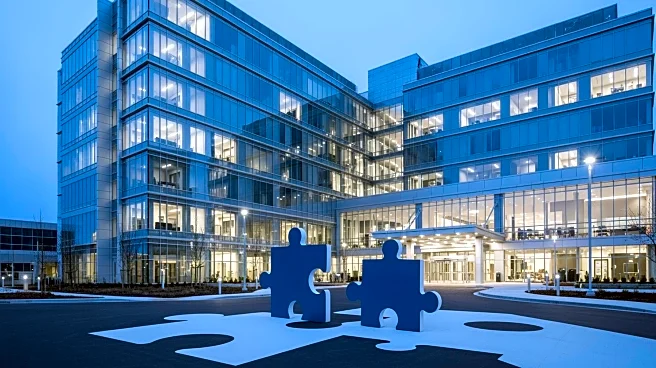What's Happening?
A recent report by Checkr, an HR technology company, has identified the top U.S. cities for Gen Z workers, with a notable emphasis on Midwest locations. The report utilized data from the US Census Bureau
and the Bureau of Economic Analysis to rank cities based on employment, affordability, and social life. Madison, Wisconsin, topped the list due to its proximity to the University of Wisconsin-Madison, offering strong job opportunities and a vibrant social scene. Other cities like Minneapolis, Des Moines, and Omaha also ranked highly, providing a blend of economic momentum and lifestyle appeal. The report highlights the challenges Gen Z workers face in major cities like Los Angeles and New York, where high living costs can impede financial stability.
Why It's Important?
The findings of the Checkr report are significant as they offer insights into the shifting preferences of Gen Z workers, who are increasingly seeking cities that balance career opportunities with affordable living. This trend could influence economic and demographic shifts, as young professionals opt for cities that offer a lower cost of living and a slower-paced lifestyle. The emphasis on Midwest cities suggests a potential revitalization of these areas, attracting talent and fostering economic growth. Businesses and policymakers may need to consider these preferences to attract and retain young talent, impacting urban development and economic strategies.
What's Next?
As Gen Z workers continue to prioritize affordability and lifestyle alignment, cities identified in the report may experience increased demand for housing and services tailored to young professionals. This could lead to urban development initiatives aimed at enhancing infrastructure and amenities to accommodate the growing population. Additionally, businesses in these cities may benefit from a larger pool of young talent, potentially driving innovation and economic growth. Policymakers might focus on creating supportive environments for startups and industries that appeal to Gen Z workers, further boosting local economies.
Beyond the Headlines
The report's emphasis on Midwest cities for Gen Z workers could have broader cultural implications, challenging the traditional allure of coastal cities. This shift may influence cultural dynamics, as young professionals bring diverse perspectives and contribute to the social fabric of these regions. Additionally, the focus on affordability and lifestyle could prompt discussions on urban planning and sustainability, as cities strive to balance growth with environmental and social considerations.









